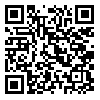دوره 3، شماره 2 - ( Spring 2017 -- 1396 )
جلد 3 شماره 2 صفحات 132-125 |
برگشت به فهرست نسخه ها
Download citation:
BibTeX | RIS | EndNote | Medlars | ProCite | Reference Manager | RefWorks
Send citation to:



BibTeX | RIS | EndNote | Medlars | ProCite | Reference Manager | RefWorks
Send citation to:
Chabok M, Kashaninia Z, Haghani H. The Relationship Between Spiritual Health and General Self-Efficacy in the Iranian Elderly. JCCNC 2017; 3 (2) :125-132
URL: http://jccnc.iums.ac.ir/article-1-135-fa.html
URL: http://jccnc.iums.ac.ir/article-1-135-fa.html
The Relationship Between Spiritual Health and General Self-Efficacy in the Iranian Elderly. نشریه مراقبت پرستاری مددجو محور. 1396; 3 (2) :125-132
چکیده: (5232 مشاهده)
Background: Elderliness is a sensitive period of life; so, it is necessary to pay special attention to various aspects of the health care for the elderly, including their spiritual well-being in the society. Spirituality and spiritual beliefs are closely associated with psychological aspects of a human mind, and they aim at balancing one’s life. Self-efficacy is one of the psychological aspects, which play an important role in maintaining the mental and physical health. This study was conducted to determine the relationship between spiritual wellbeing and general self-efficacy in the elderly population of Tehran.
Methods: This descriptive correlational study was conducted on 822 elderly people who regularly visited some of the parks of Tehran, Iran, in 2015. Samples were chosen by the multi-stage method. The relevant data were collected through demographic information in addition to tests and questionnaires including Abbreviated Mental Test Score (AMTS) for determining cognitive impairment and General Self-Efficacy (GSE-10) y and Spiritual Well-Being Scale (SWBS). The data were analyzed using Pearson correlation and t-tests by SPSS Version: 20.0.
Results: The results of the current study showed that general self-efficacy is related to religious, existential, and spiritual health. The findings also indicated that among the demographic variables, spiritual health is mostly related to marital status and the ability to perform Activities of Daily Living (ADL) in addition to residence and income.
Conclusion: Since aging is an important challenge in the health system, promoting spiritual health in the elderly population can result in these individuals’ high self-efficacy, ultimately leading to a higher physical and mental health status.
Methods: This descriptive correlational study was conducted on 822 elderly people who regularly visited some of the parks of Tehran, Iran, in 2015. Samples were chosen by the multi-stage method. The relevant data were collected through demographic information in addition to tests and questionnaires including Abbreviated Mental Test Score (AMTS) for determining cognitive impairment and General Self-Efficacy (GSE-10) y and Spiritual Well-Being Scale (SWBS). The data were analyzed using Pearson correlation and t-tests by SPSS Version: 20.0.
Results: The results of the current study showed that general self-efficacy is related to religious, existential, and spiritual health. The findings also indicated that among the demographic variables, spiritual health is mostly related to marital status and the ability to perform Activities of Daily Living (ADL) in addition to residence and income.
Conclusion: Since aging is an important challenge in the health system, promoting spiritual health in the elderly population can result in these individuals’ high self-efficacy, ultimately leading to a higher physical and mental health status.
| بازنشر اطلاعات | |
 |
این مقاله تحت شرایط Creative Commons Attribution-NonCommercial 4.0 International License قابل بازنشر است. |





